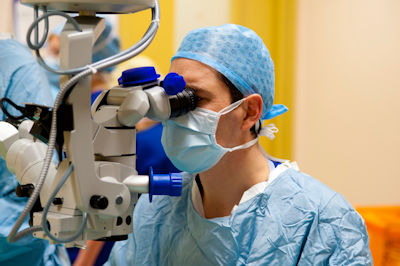How Should I Sleep After Cataract Surgery?
If you will be having cataract surgery, you may want to know how to sleep afterward. Learn more from the professionals at Elmquist Eye Group.
 Since 1992, patients in Fort Myers and Cape Coral have visited Elmquist Eye Group for the highest quality eye care, including cataract evaluations and surgery, glaucoma evaluation and treatment, dry eye evaluation and treatment, and other eye conditions that affect people of all ages.
Since 1992, patients in Fort Myers and Cape Coral have visited Elmquist Eye Group for the highest quality eye care, including cataract evaluations and surgery, glaucoma evaluation and treatment, dry eye evaluation and treatment, and other eye conditions that affect people of all ages.
Yasaira Rodriguez, MD is board certified ophthalmologist and a member of the American Society of Cataract and Refractive Surgery. Dr. Rodriguez’s eye surgery expertise include cataract surgery, upper eyelid surgery and in-office procedures.
Cataract Surgery Overview
Cataract surgery today is more advanced than ever, and can produce excellent results. Elmquist Eye Group will first perform a series of tests to determine the severity of your cataracts, discuss the treatment options with you, and help you decide when the time is right to consider cataract surgery.
During cataract surgery, Dr. Rodriguez will gently numb your eye so that you won’t feel discomfort and use ultrasound vibrations to break up the cloudy lens. The fragments of the cataract are then removed using gentle suction, and the artificial lens (intraocular lens or IOL) you have selected is inserted.
The entire procedure takes less than 30 minutes, and most patients notice an immediate improvement in their vision. For some, it may take a short time to adjust to halos and glare around lights, but this usually goes away over time.
At Elmquist Eye Group, we now offer bladeless laser-assisted cataract surgery which is designed to improve the precision, safety and accuracy of cataract surgery. The FDA-approved laser automates three steps of the surgery that previously had to be done manually.
After Cataract Surgery
Many patients report clear vision within a few hours of cataract surgery and are amazed by the clarity and the brightness of colors. But each person heals differently, so don’t be alarmed if your vision is a bit cloudy or blurry. It may take a week or two before you see images in their sharpest focus.
In general, you should be able to watch TV, do some light computer work, and shower or bathe within a few hours of your surgery.
Your doctor may send you home with a bandage or clear shield for your eye. You may only need to wear the protective shield for a week or two to avoid rubbing the eye while you sleep.
Typically, your surgeon will schedule a follow-up appointment with you on the day after your procedure to ensure there are no complications. If you feel discomfort or don’t notice any improvement in your blurry vision in the days following this appointment, be sure to report the situation to the surgeon.
Recovery following cataract surgery should be complete in about a month, when your eye is completely healed.
Cataract surgery should not affect how you sleep, aside from possibly wearing a protective eye shield to avoid rubbing the eye. For more information about recovery following cataract surgery, call Elmquist Eye Group at (239) 936-2020. We welcome your questions and always do our best to provide accurate answers.
